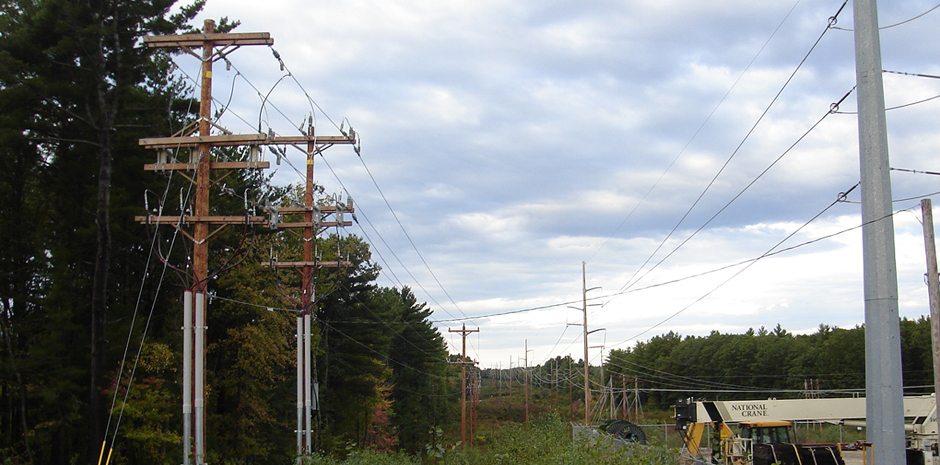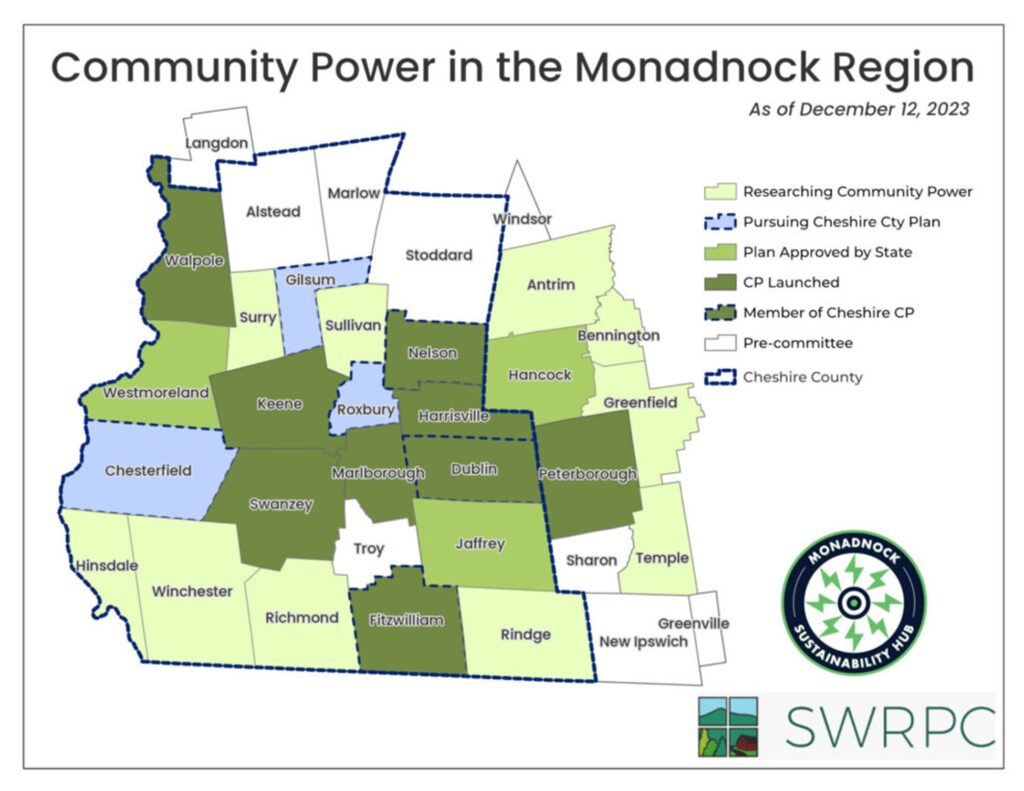
Monadnock Region Leads the Way with Community Power
- April 23, 2024
- Economic Development
Community Power programs refer to locally controlled electricity supply programs that communities can develop to benefit their residents. Community Power programs provide an opportunity for local governments to help build resilience through developing local energy projects, such as municipal solar installations, through flexible funding options incorporated within the power contract. Programs may additionally help increase local renewable energy consumption by increasing the percentage of renewable energy that residents are buying by default. Most critically, Community Power programs have been shown to help rate payers save money on their electricity bills.
As of January 2024, New Hampshire residents paid an average price of 25.07 cents/kilowatt hour for their electricity, the seventh highest figure for all 50 states and the District of Columbia. To minimize the burden of high utility prices it is critical to implement solutions that can reduce these costs for ratepayers. Community Power programs can help achieve lower rate payer costs by aggregating the demand of individual ratepayers within a community and using this leverage to receive better rates for the supply of electricity. This mechanism is how large companies, as well as municipalities themselves, may already be saving money on their power contracts. Minimizing the cost of electricity for New Hampshire residents may lead to additional consumer activity as they are able to spend more money in their local economies.
Community Power programs were enabled by statute in New Hampshire by RSA 53-E in 2019. This statue enables Community Power programs to become the default service in communities for which they are adopted. Therefore, when a municipality develops a Community Power program, residents who are existing “default customers” of the region’s utility are automatically enrolled into the municipality’s Community Power program at launch. It is the law’s provision that default customers must deliberately choose to opt out of a Community Power program that is key to making these programs successful, because very few people make an effort to “opt out”. While residents within the community who are not on the default service plan are not automatically enrolled, this segment only represents a small proportion of rate payers.
To develop a program, municipalities typically appoint interested residents to an energy committee, which is then tasked with working with service providers to create a Community Power plan. Southwest Region Planning Commission (SWRPC) and Monadnock Sustainability Hub (MSH), sharing the same service area, recognized that this process was complicated and difficult for communities to navigate. Accordingly, the two organizations partnered to develop educational programming aimed at providing guidance to municipalities that may be interested in the development of a Community Power program. SWRPC and MSH presented to select boards, planning boards and energy committees in communities interested in learning more about how to structure and implement a local Community Power program.

Since Community Power programs were enabled in New Hampshire through state law, SWRPC, in partnership with MSH, has presented to (or otherwise aided) 23 individual communities within the Monadnock Region, representing 70% of the municipalities in our service area. Additionally, the partnership helped Cheshire County to develop a county-level Community Power plan for which eligible municipalities could join directly through a selectboard vote. SWRPC and MSH met regularly throughout the past several years, as often as weekly, to coordinate and strategize their assistance as well as to develop and adjust individual presentations.
As of January 2024, 9 towns within the region have successfully launched a Community Power program or have joined Cheshire County’s plan. An additional 3 communities have had their plan approved by the state and will be launching within the coming months. 3 municipalities are currently planning to join the Cheshire County plan, and 10 other communities are researching what options may serve them best. In total, 25 communities within SWRPC and MSH’s service areas have launched or are pursuing Community Power, representing 74% of the 34 total municipalities.
Communities assisted by SWRPC and MSH
| Communities | Type of Assistance |
| Alstead, Antrim, Bennington, Chesterfield, Fitzwilliam, Gilsum, Greenfield, Greenville, Harrisville, Hinsdale, Jaffrey, Marlow, Nelson, Richmond, Sharon, Stoddard, Sullivan, Troy, Westmoreland, Winchester | Provided presentation at town selectboard, planning board or energy committee meeting and offered supplementary assistance as needed |
| Cheshire County, Hancock, Keene, Marlborough, Walpole | Provided assistance but did not present to community |



